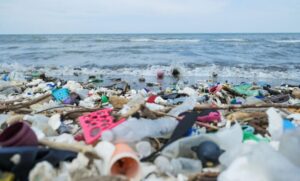Six of the world’s leading public development banks have launched a renewed and expanded effort to tackle marine plastic pollution through the Clean Oceans Initiative 2.0. The announcement was made at the United Nations Ocean Conference (UNOC) held in Nice, France, where leaders from around the world gathered to push forward ocean sustainability goals under the UN’s Sustainable Development Goal 14.
The banks behind this global effort include Agence Française de Développement (AFD), European Investment Bank (EIB), Kreditanstalt für Wiederaufbau (KfW), Cassa Depositi e Pres  titi (CDP), European Bank for Reconstruction and Development (EBRD), and the Asian Development Bank (ADB)—the latest to join the group, strengthening the initiative’s reach in Asia.
titi (CDP), European Bank for Reconstruction and Development (EBRD), and the Asian Development Bank (ADB)—the latest to join the group, strengthening the initiative’s reach in Asia.
€3 Billion Commitment for 2026–2030
Under COI 2.0, the consortium has committed to mobilise €3 billion between 2026 and 2030. This follows the success of the original Clean Oceans Initiative launched in 2018, which exceeded its initial €2 billion target and went on to secure €4 billion by May 2025 seven months ahead of schedule.
Since its launch, the initiative has supported over 80 projects in countries such as Sri Lanka, Egypt, China, South Africa, Senegal, Togo, Benin, Morocco, and Ecuador. These projects have focused on improving wastewater treatment, managing solid waste, and building systems to handle floods and stormwater crucial steps to keep plastics from entering waterways and oceans.
Why the New Phase Is Critical
The push for COI 2.0 comes amid alarming forecasts. According to UN estimates, if nothing changes, the amount of plastic waste entering the world’s aquatic ecosystems could triple by 2040 hitting 37 million tonnes each year.
“Reaching our earlier target ahead of time shows how powerful partnerships can be,” said Ambroise Fayolle, Vice-President of the EIB. “Now, we’re broadening the scope, working closely with local partners to deliver innovative, effective solutions where they’re needed most.”
With oceans soaking up over 90 per cent of heat generated by global warming and playing a vital role in supporting biodiversity and livelihoods, cutting marine plastic pollution has become both an environmental and economic necessity.
New Goals Under COI 2.0
While the first phase focused on upgrading waste and water systems, COI 2.0 will aim for deeper impact through:
•Preventing plastic waste by supporting upstream interventions
•Promoting circular economy approaches
•Developing and financing alternatives to single-use plastics
•Tracking results with clear, measurable indicators
Asia’s Crucial Role
The inclusion of the Asian Development Bank marks a key expansion, as Asia contributes the largest share of marine plastic pollution, driven by fast urban growth and gaps in waste management.
“We’re excited to contribute our regional expertise to COI 2.0,” an ADB spokesperson said. “This will help scale meaningful solutions across Southeast Asia and the Pacific.”
Looking Ahead
As the initiative moves forward, the six banks will work with governments, local communities, private firms, and global NGOs to create lasting, science-driven change. Special focus will be on helping the most vulnerable areas especially in the Global South through finance, knowledge sharing, and skill development.
The Clean Oceans Initiative has grown into the world’s largest multilateral programme solely aimed at tackling marine plastic pollution. With the official launch of COI 2.0, the effort sets a global example of how development finance can drive large-scale environmental recovery.
